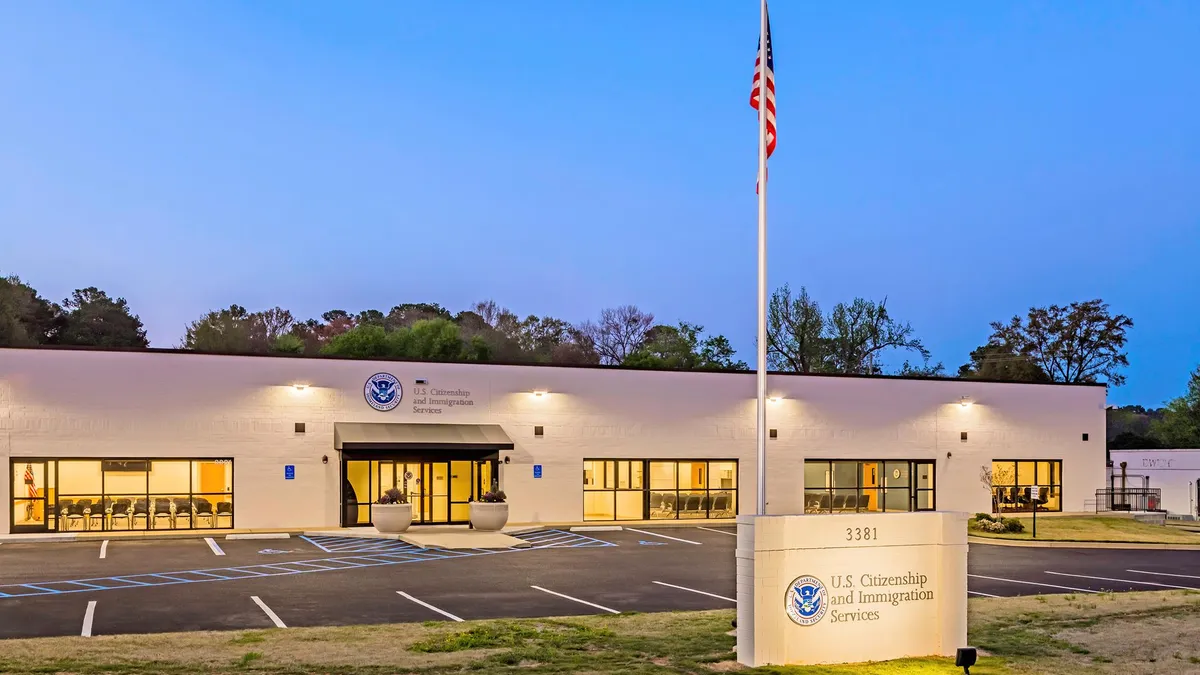Dive Brief:
- H-1B visa denials and requests for evidence (RFEs) rose significantly in the fourth quarter of 2017, an increase likely stemming from Trump administration policies, according to the nonprofit National Foundation for American Policy (NFAP), which obtained the data from the U.S. Citizenship and Immigration Services (USCIS). Denials increased by 41% from Q3 to Q4, and the number of RFEs in Q4 was more than the first three quarters of the year combined.
- Both upward trends followed the Trump administration's "Buy American and Hire American" executive order issued in April 2017, NFAP said. The foundation's analysis showed RFEs in 2017's fourth quarter were much higher than in the first quarter of that year — the final months of the Obama administration. Also, USCIS adjudicators issued more RFEs for applications for Indian nationals than for any other foreign groups, and the denial rate for L-1B petitions, which bring foreign nationals with specialized skills into the U.S., increased from 21.7% to 28.7% between the first and fourth quarters of 2017.
- According to NFAP, a recent USCIS memo on "notices to appear" could put highly skilled foreign nationals whose applications were denied into deportation proceedings, and another new policy allows adjudicators to deny applications for H-1B visas without giving employers a chance to respond to RFEs. The foundation said that because of the expense and time involved in applying for visas, "employers and attorneys only apply for individuals they believe have a good chance of gaining approval."
Dive Insight:
The number of H-1B visa denials are of particular concern to employers who rely on the expertise of highly skilled workers, mostly in the science, technology, engineering and mathematics fields. In a tight labor market with a low unemployment rate, employers are struggling just to fill job openings, and skills deficits in particular areas have led many to look overseas.
The Trump administration has tightened up the H-1B process, as it promised to do after the 2016 presidential election. In 2018, employers applying for highly skilled foreign nationals have had to reevaluate previous protocols as well as future hiring strategies, Jorge R. Lopez, chair of Littler Mendelson's Global Mobility and Immigration Practice Group, told HR Dive in an earlier interview.
Current federal policy on immigrant workers may continue to make hiring foreign nationals more difficult and application denials more common. And with no end to skills gaps and technological disruption in sight, some employers are working to address this perfect storm through employee development, and other means.













